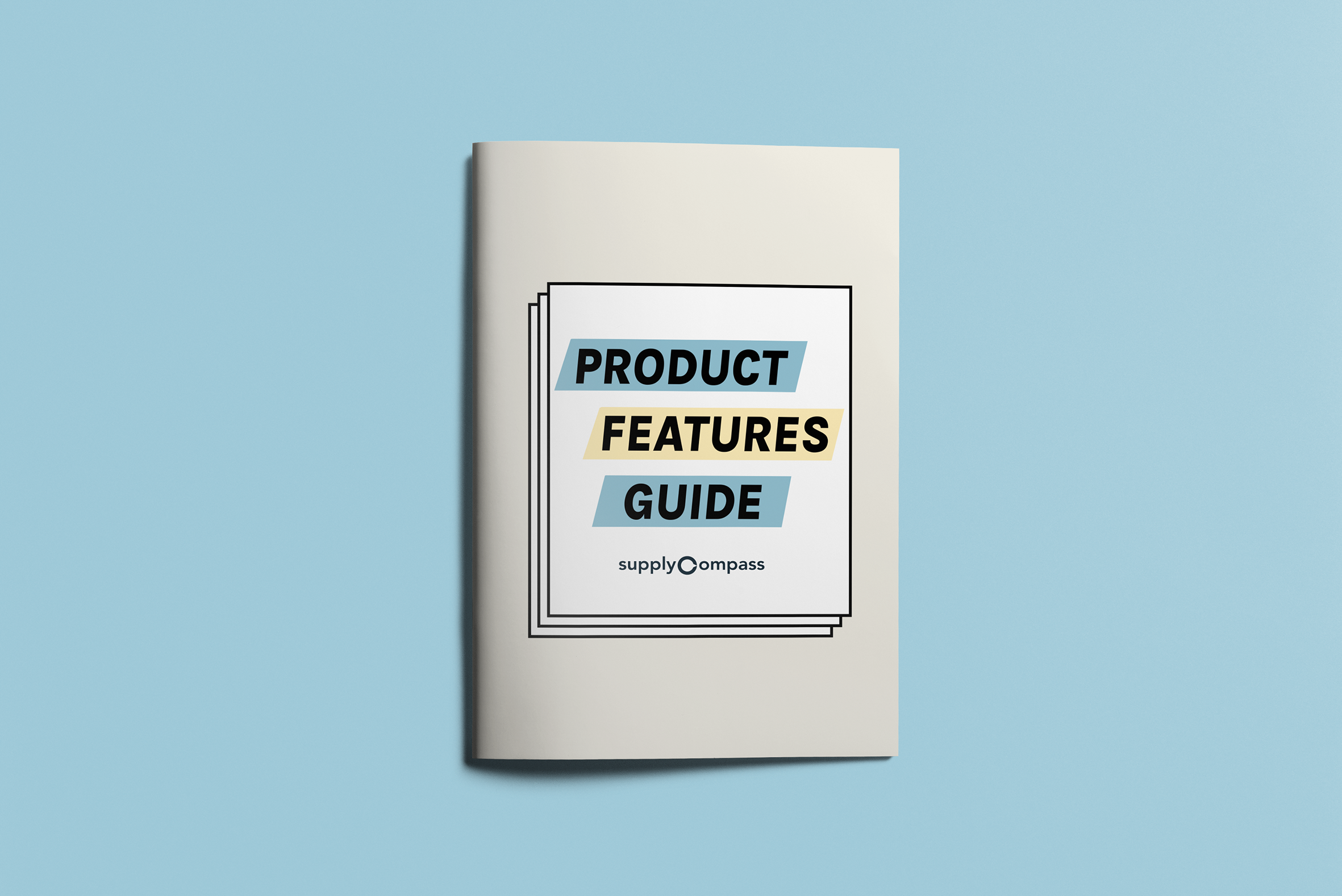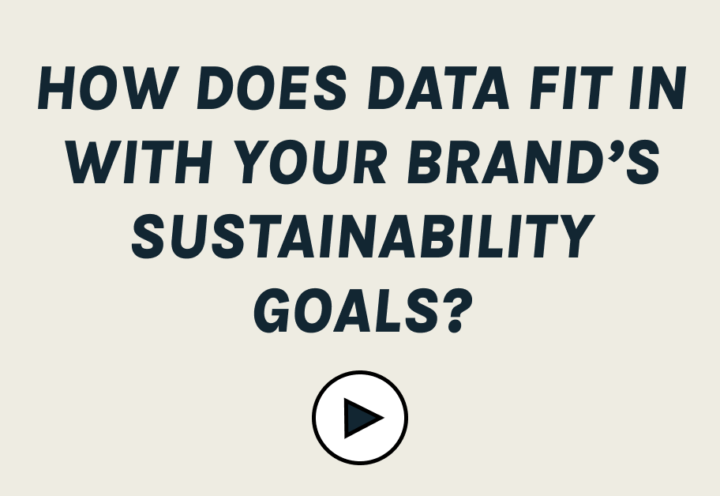Tech Talks with Stephanie Benedetto, Co-Founder of Queen of Raw
9 min read Jul 20
All photography provided by Queen of Raw
SupplyCompass speaks to Stephanie Benedetto, CEO & Co-Founder of Queen of Raw—a NYC-based tech startup changing the landscape for deadstock fabric. Queen of Raw matches buyers with sellers, where unused textiles are sold quickly and easily at lower price points, giving people access to materials that they never had before. Sellers map, measure, and trace their waste in real-time, minimizing waste streams going forward.
SupplyCompass is partnering with Queen of Raw to provide brands with a myriad of deadstock fabric options to help them create more sustainable collections, create value from waste and champion circularity.
Deadstock fabrics are textiles which are leftovers from previous seasons with no plan for future use. Deadstock fabrics commonly come from a fashion brand or mill’s collection where it wasn’t required as well as rejected fabrics, unable to be sold due to minor defects or design changes.
Tech Talks is SupplyCompass’ content series spotlighting software and technology companies at the forefront of cutting-edge innovation, through the lens of fashion and supply chains. A must-read for fast-growing, ambitious fashion brands looking to invest in digital transformation.
Tell us more about Queen of Raw; how did you start, and how are you tackling the textile waste problem?
My family has been in the fabric business for over 100 years, but over that time frame, many financial and environmental inefficiencies have emerged. Today, the fashion industry is the second greatest polluter of freshwater in the world and a lot of the raw material produced by this industry goes to waste. $120 billion a year of unused material is thrown into landfills, burned up or just laid to rest in warehouses. This is higher than the GDP of most countries.
I began my career on Wall Street as a corporate attorney, specializing in fashion and technology. Then I started an innovative textile manufacturing company. While working on this business, I experienced firsthand the issues around fabric waste. I decided to go from producing fabric to creating a global, online, blockchain-enabled marketplace that helps sell the fabric that would otherwise contribute to the industry’s waste and pollution.
Queen of Raw’s marketplace uses artificial intelligence (AI) and machine learning (ML) to match companies that have excess fabric with the creators close by who need it throughout the world. So far, Queen of Raw has helped buyers and sellers of fabric save over one billion gallons of water. That’s enough clean water for 1.43 million people to drink around the world for 3 years.
I launched my business at the same time as I had my first child. This has only made me stronger. I am doing what I am doing to make a difference in the world not just for myself anymore, but for my children and my children’s children. I want them to have clean water to drink, clothes that aren’t toxic to wear, and a planet to live on. Together we can solve the world’s water crisis!

What opportunities do you see for deadstock and other types of “waste” to be used more widely in the fashion industry?
Fast fashion has driven a drastic increase in textile production. Global per capita textile production has increased from 5.9 kg to 13 kg per year over the period 1975–2018 and is projected to continue growing. Up to 15% of that fabric is wasted.
This waste is occurring now more than ever and it is polluting our drinking water, especially in developing countries. One tee shirt takes 700 gallons of water to produce. If we continue at the current pace of textile production, by 2025, two-thirds of the entire world’s population will face shortages of freshwater and be exposed to hazardous chemicals from textile production alone (World Wildlife Fund). So we are not talking about 100 years from now, or even 50 years from now. We are talking about today and on our shores.
One of the unique and innovative features of our business is how it aligns the interests of various stakeholders (including the companies selling excess product, the creatives that purchase it, our business, and society as a whole). We have created incentives for one of the highest polluting industries to reduce their waste and environmental impact. This has resulted in our enterprise customers (from fast fashion to luxury) saving up to 15% of their bottom line in just one year.
What role does the use of technology play in your business?
The quicker we match a buyer with a seller, the quicker we can keep this waste out of landfill. We implement artificial intelligence like product recommendations, chatbots, and custom search results to enhance the matchmaking process in our marketplace. And we verify data records and workflow using blockchain.

What has been your biggest learning or challenge along the way?
Don’t be afraid! Don’t be afraid to take risks, put your ideas out there, and test your solution in the market — these are important steps to being able to improve your offering and iterate your product effectively.
Another thing no one tells you: don’t be afraid to move into a crowded market space with many competitors. You can learn from the mistakes of those who came before you, do it better than them, command their market share, and be the last player in the market who really dominates!

Queen of Raw is a SupplyCompass Additions Partner—we work with leading partners in the fashion industry, in addition to our core platform offering, in order to provide a holistic supply chain solution for fashion brands and manufacturers.
What are your aspirations for the future of Queen of Raw?
Queen of Raw’s vision is a world without waste. Our mission is to help businesses minimize waste in their supply chains, supporting their bottom line and the environment, while changing the way businesses think about waste. By 2025, we can save over 4 billion gallons of water (SDG 6), keep over 2 million tons of textiles out of landfills (SDG 12), and improve our customers’ bottom line by 15% (SDG 17).

What advice would you give to brands wanting to be more responsible?
We are in a period of massive disruption, requiring us to digitally innovate our way out of crisis. For supply chains to be resilient and agile, this means reducing our customers’ costs while sustainably securing the materials needed across their supply lines in real time. Unused textiles can still fill orders on demand and away from areas impacted by disruption, while supporting commitments to sustainability.
And fashion executives now prioritize sustainability, transparency, and digitizing the process of buying and selling textiles over everything else. This period of quarantine could even accelerate some of these shifts, including customers’ growing antipathy toward waste-producing business models and heightened expectations for purpose-driven, sustainable action.

Join us for an insightful conversation with Queen of Raw.
Webinar taking place Thursday 17 September, 5PM BST · 12PM EDT
SupplyCompass is a Collaborative Production Platform for Fashion that brand builders, production teams and their manufacturers use to collaborate on product from moodboard to delivery.
More on our blog
We’ve launched our comprehensive Product Features Guide!
We’ve just launched The SupplyCompass Product Features Guide. We break down all our 95+ features and sub-features, explaining how you can use them and what makes them tick—so you can understand how SupplyCompass can help SME fashion brands like you.
Right Thing #5 - The name of the game is Agility
In agility, there’s a real emphasis on co-creation, on a cycle of continuous improvement, production and distribution with regular reflections on how to be better by constant fine-tuning and adjusting. Brands and supply chains being agile will, no doubt, be the most successful — and sustainable — organisations of the future.
Here’s how tech enables sustainability
What’s the first thing that comes to mind when you think of sustainability? Data is rarely the answer. Watch/Listen to Co-Founder and Head of Product Flora Davidson explain how technology can enable brands to embed sustainability principles into their business.
Get started with our platform
Read the Right Thing
Subscribe to join sustainability nerds, production gurus and thought leaders from companies like Ganni, Adidas, AllBirds and Finisterre & become part of the 10,000+ community who get The Right Thing—a fortnightly letter straight from our Co-Founder’s desk.


